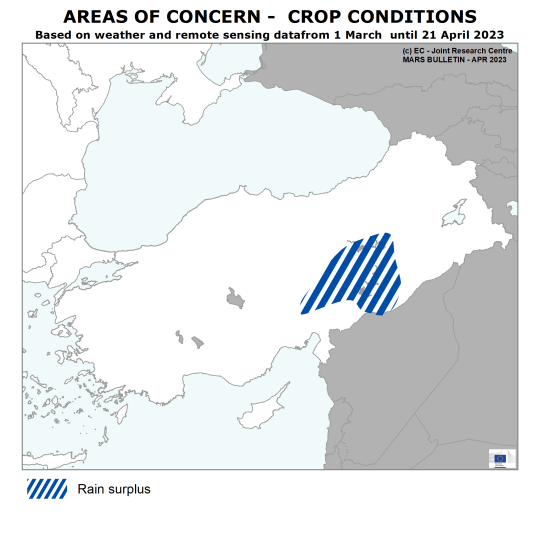Fair conditions for winter crops in Türkiye
Initial delays in crop development were recovered, and the risk posed by the dry weather of late winter and early spring has substantially diminished thanks to abundant rainfall since 15 March. South-eastern production regions suffered damage from the earthquake and floods, but crops have recovered quickly.

Rainfall arrived on time in Anatolian regions
Winter was generally drier and warmer than usual until February, when a cold spell delayed crop growth. Since then, crop conditions improved thanks to well-distributed precipitation and favourable temperatures. Fair yields are currently expected, and the yield outlook may further improve if conditions are favourable for the rest of the season.
Crops in average- to good condition in south-eastern regions
Thanks to a wet and warm winter, crops developed earlier than usual. Temperatures dropped in February, which returned crops to normal conditions for the time of year. Frequent and abundant rainfall since 15 March has led to sub-optimal growth conditions. Yield perspectives are favourable, as the current overly wet soil conditions could become an important resource that will help maintain high yield potential for winter crops if the weather turns dry in the coming weeks
Yield forecasts are favourable for winter crops
Forecasts for barley and soft wheat are in line with the 5-year average, and above average for durum wheat.

Further information
JRC MARS (Monitoring Agricultural Resources) Bulletins
JRC AGRI4CAST Toolbox
The latest information about global agricultural production hotspots for countries at risk of food insecurity is available on the JRC’s ASAP (Anomaly hot Spots of Agricultural Production) website.


